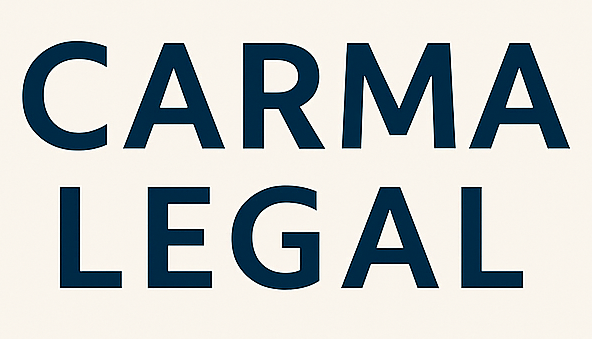After a catastrophic crash that claims a loved one, you face emotional turmoil and complex legal decisions. Finding the right fatal car accident lawyer can provide the support you need to pursue justice and secure compensation for medical expenses, lost income, and pain and suffering. In these high-stakes wrongful death and catastrophic injury claims, you deserve an attorney who understands your unique challenges, guides you through each step, and fights to protect your rights.
This guide walks you through the critical factors to consider as you navigate fatal car accident litigation. From recognizing the type of claim you have to securing full compensation, you will learn how to choose an experienced advocate, prepare essential evidence, and take proactive steps toward a fair settlement or verdict.
Recognize your claim
Fatal car accident lawsuits
When someone dies in a traffic collision, you cannot bring a personal injury suit on their behalf. Instead, you pursue a wrongful death claim or fatal car accident lawsuit. A wrongful death lawyer files suit in the name of the deceased’s estate or an eligible family member to recover damages that compensate for the financial and emotional losses you endure.
Wrongful death claims fundamentals
Wrongful death claims require proof that another party’s negligence or intentional act caused the fatal crash. Common negligent behaviors include speeding, drunk driving, distracted driving, or failure to obey traffic signals. You must establish all of the following elements:
- Duty of care: The at-fault driver owed a legal obligation to operate their vehicle safely.
- Breach of duty: The driver violated that duty through careless or reckless conduct.
- Causation: The breach directly led to the accident and the fatal injury.
- Damages: You suffered measurable losses, such as funeral expenses, lost wages, and loss of companionship.
If you need more general guidance on wrongful death litigation, a wrongful death lawyer can walk you through state-specific requirements and ensure your case meets all legal standards.
Determine eligibility requirements
Statute of limitations
Every state imposes a deadline for filing a wrongful death claim. In Florida, for example, you have two years from the date of death to file suit [1]. In Ohio, the limit is also two years, though some states allow only one year or extend up to three. Missing this deadline can bar your recovery entirely, so it is crucial to consult an attorney promptly after the accident.
Eligible claimants
Only certain individuals can pursue a wrongful death lawsuit. Most states allow the deceased’s spouse, children, or parents to file. In some jurisdictions, the personal representative of the estate has the sole authority to sue, while distant relatives, like siblings or cousins, typically cannot. Confirm who qualifies under your state’s law before moving forward—your lawyer can help determine the proper parties to list as plaintiffs.
Identify required services
Investigation and evidence gathering
A thorough investigation lays the groundwork for any successful claim. Your lawyer should:
- Obtain and review the police accident report.
- Secure medical records and autopsy findings.
- Preserve traffic camera footage, if available.
- Work with accident reconstruction experts to establish fault.
Insurance negotiation
Insurance companies often make lowball settlement offers, delay payment, or request excessive documentation to minimize their liability [2]. An experienced attorney will engage with adjusters, counter unfair tactics, and refuse inadequate initial offers. You should expect your counsel to:
- Demand timely responses to settlement proposals.
- Challenge low valuations of medical costs, lost income, and pain and suffering.
- Push for full policy limits when appropriate.
Trial preparation
If insurers refuse a fair settlement, your lawyer must be ready to litigate. Key steps include:
- Drafting and filing the complaint.
- Conducting written discovery and depositions.
- Preparing expert witnesses to testify on causation and damages.
- Developing a persuasive trial strategy.
| Service | Description |
|---|---|
| Investigation | Collect police reports, medical records, and scene evidence |
| Insurance negotiation | Negotiate with adjusters and counter lowball settlement offers |
| Litigation | File suit, handle discovery, and represent you in court |
Evaluate attorney qualifications
Specialization and experience
You need a lawyer who focuses on car accident and wrongful death cases, not a general practitioner. Attorneys who handle serious injury lawyer matters or catastrophic collisions understand the nuances of fatal crash litigation. Look for:
- A track record of billion-dollar recoveries or high-value verdicts.
- Experience with complex liability scenarios, such as multi-vehicle accidents or commercial truck crashes.
- Familiarity with local courts, judges, and opposing counsel.
Case results and reputation
Review past settlements and verdicts to gauge an attorney’s effectiveness. A successful firm will share representative outcomes, such as securing $2 million for lost earning capacity or $1.5 million for funeral expenses and emotional distress. You can also:
- Read client testimonials and online reviews.
- Check for peer-review ratings on sites like Avvo or Martindale-Hubbell.
- Ask for references from former clients, if available.
Communication and support
Strong communication skills are crucial during this emotional time. Your lawyer should:
- Explain legal concepts and case progress in clear, accessible language.
- Return calls and emails promptly.
- Offer empathy and respect for your family’s loss.
Determine whether the attorney will handle your case personally or delegate to less experienced staff. A balanced team approach can work if senior counsel remains involved in key decisions.
Compare fee structures
Contingency fee basis
Most fatal accident lawyers work on contingency, meaning they receive a percentage of your recovery—typically 33 to 40 percent—only if they win. This arrangement:
- Eliminates upfront legal fees.
- Aligns your lawyer’s incentives with your case outcome.
- Allows you to focus on healing rather than billing hours.
Costs and expenses
In addition to contingency fees, you may be responsible for case expenses, including:
- Expert witness fees.
- Court filing fees and deposition costs.
- Costs for obtaining medical and accident records.
A reputable firm will advance these expenses on your behalf and deduct them from your settlement or verdict, ensuring you avoid out-of-pocket charges during litigation.
| Fee type | Description | Pros | Cons |
|---|---|---|---|
| Contingency fee | Percentage of recovery if you win | No upfront fees, aligned incentives | Fee percentage reduces net award |
| Hourly fee | Billed by the hour, regardless of outcome | Transparent billing | Financial risk if case prolongs |
Gather essential evidence
Accident reports and medical records
Begin collecting all documentation from day one, including:
- Official crash reports from law enforcement.
- Emergency medical technician and hospital records.
- Autopsy findings, if applicable.
These records establish the facts of the collision and demonstrate how the fatal injury occurred.
Witness statements and expert testimony
Identify eyewitnesses who observed the crash. Obtain signed, recorded statements to preserve their accounts. Your lawyer may engage experts in:
- Accident reconstruction to determine speed, impact angles, and point of collision.
- Medical causation to link negligent acts directly to the fatal injury.
- Economic analysis to quantify future lost income and care needs.
Prepare your case
Initial consultation
Most firms offer a free initial evaluation. Use this meeting to:
- Discuss the facts of the crash and your loved one’s treatment.
- Ask about the attorney’s experience with fatal car accident and wrongful death lawsuits.
- Outline potential damages and recovery strategies.
- Confirm the fee structure and case expenses.
Come prepared with key documents and a list of questions to gauge whether the lawyer is the right advocate for your family.
Timeline and milestones
A typical wrongful death case moves through several phases:
- Case intake and investigation – 1 to 3 months
- Insurance negotiations – 3 to 9 months
- Lawsuit filing and discovery – 6 to 18 months
- Mediation or trial – 12 to 24 months
Timelines vary based on case complexity, court schedules, and insurer cooperation. Your lawyer should provide regular updates and realistic expectations for each stage.
Secure full compensation
Economic damages
These quantifiable losses include:
- Medical and funeral expenses.
- Lost wages and future earning capacity.
- Costs for household support or long-term care.
Non economic damages
Compensation for intangible harms, such as:
- Pain and suffering endured by the deceased before passing.
- Loss of companionship, affection, and guidance for surviving family members.
- Emotional distress and loss of consortium.
Additional recovery options
Beyond standard wrongful death awards, you may pursue:
- Claims against multiple liable parties, including employers, manufacturers, or social hosts who served alcohol.
- Survivor benefits through workers’ compensation, if the fatal crash occurred on the job.
- Punitive damages in cases of gross negligence or intentional misconduct.
A skilled lawyer will explore every avenue to maximize your recovery. If you need targeted support for a specific injury or loss, consider consulting a survivor benefits claim lawyer or loss of consortium claim attorney.
By following these steps—recognizing your claim, determining eligibility, identifying required services, evaluating attorney qualifications, comparing fee structures, gathering evidence, preparing your case, and securing full compensation—you can make informed decisions and find the advocate best suited to handle your loved one’s fatal car accident litigation. Taking action early and partnering with a dedicated lawyer ensures you have the support necessary for lasting justice and financial security.








